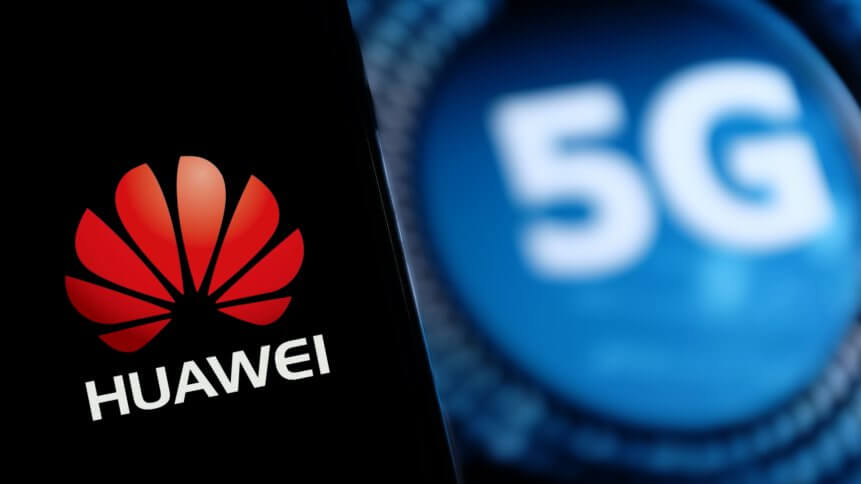Rapid ban on Huawei in UK could lead to mobile blackouts

- Leaders from two of the UK’s biggest telecoms firms warn of huge disruptions to services and infrastructure if Huawei ban is brought in ‘overnight’
- The UK is reviewing its position following new sanctions by the US, which have ‘locked out’ the Chinese tech firm from key components
British telecoms firms BT and Vodafone have said customers could experience cell signal blackouts, if they are given three years or less to remove Huawei’s equipment from their 5G networks.
Executives from the providers said they’d need a “sensible timescale” of at least five years, but ideally seven, to strip the Chinese technology firm’s components from their networks, pending a government decision on a Huawei ban in the next two weeks.
BT CTO, Howard Watson, said the company had started trialling a transmission of certain Huawei network sites to other vendors, but said a wholesale shift would be hugely disruptive.
“To get to zero in a three-year period would literally mean blackouts for customers on 4G and 2G, as well as 5G, throughout the country,” Watson said, explaining that the process within a short timescale would mean bringing in cranes and shutting off streets to replace masts and base stations at multiple sites at the same time.
“[Customers] would lose their signal, sometimes for a couple of days, depending on how big or how intrusive the work to be carried out is,” said Andrea Dona, Vodafone UK’s head of networks.
“I would say a five-year transition time would be the minimum.”
With the exception of O2 (which uses Ericsson and Nokia 5G equipment), three of the UK’s largest wireless providers (EE, Vodafone, and Three) currently rely on Huawei equipment for their 5G infrastructure.
Huawei supplies about a third of the equipment for Vodafone’s radio access network (RAN).
Vodafone’s UK CTO Scott Petty has previously voiced concerns that the UK risks losing a lead in 5G if “mobile operators are forced to spend time and money replacing existing equipment.”
Huawei itself has urged the UK government to take more time over its decision, with UK VP Jeremy Thompson stating “there isn’t a burning bridge,” and that’s it’s too soon to determine the impact of new US sanctions on the country’s 5G infrastructure.
In January, the UK officially approved Huawei’s involvement in building the nation’s 5G infrastructure, but also categorized Huawei as a “high risk vendor.” A cap of 35% was placed on Huawei’s participation in the development of UK 5G networks. The firm was also excluded from supplying technology to “sensitive parts” of the network, which includes locations near military bases and nuclear sites.
However, tough new US sanctions on Huawei meant that the Chinese tech giant could no longer work with American companies that supply semiconductor equipment. In this context, the UK is concerned about new security risks that may emerge due to the switch of suppliers.
Boasting “over 10 billion transistors” in a single chipset, Huawei’s Kirin 990 5G chip launched last year is built by an automated process called electronic design automation (EDA). Automation software assists with the layout design of the chip and its functionality, as well as simulating the working chip before its deployment.
However, the three leading EDA software-makers – comprising Synopsys, Cadence and Mentor Graphics (acquired by Siemens) – all have ties to the US.
The US sanctions also forbid fabricators from using semiconductor manufacturing equipment based on American technology, meaning Huawei is locked out of the equipment needed to produce the smallest transistors currently possible, so there is a cap on the efficiency of its products.
The company is therefore having to source other companies’ chips which, for the UK’s security forces, means that security of Huawei’s products can no longer be assured, even in a measured capacity.
While Huawei claims to have stockpiled around two-years’ supplies of “most essential components” for 5G network infrastructure hardware, the UK is sceptical of the company’s ability to provide essential equipment, including base stations and cloud computer servers.
However, the UK could also be looking for an excuse to revisit its earlier decision, which wasn’t looked upon favorably by its transatlantic ally.










